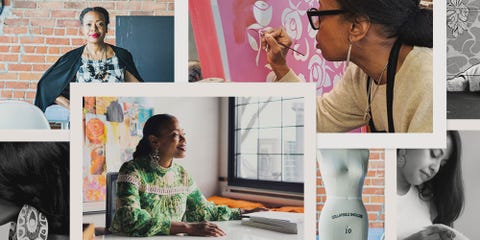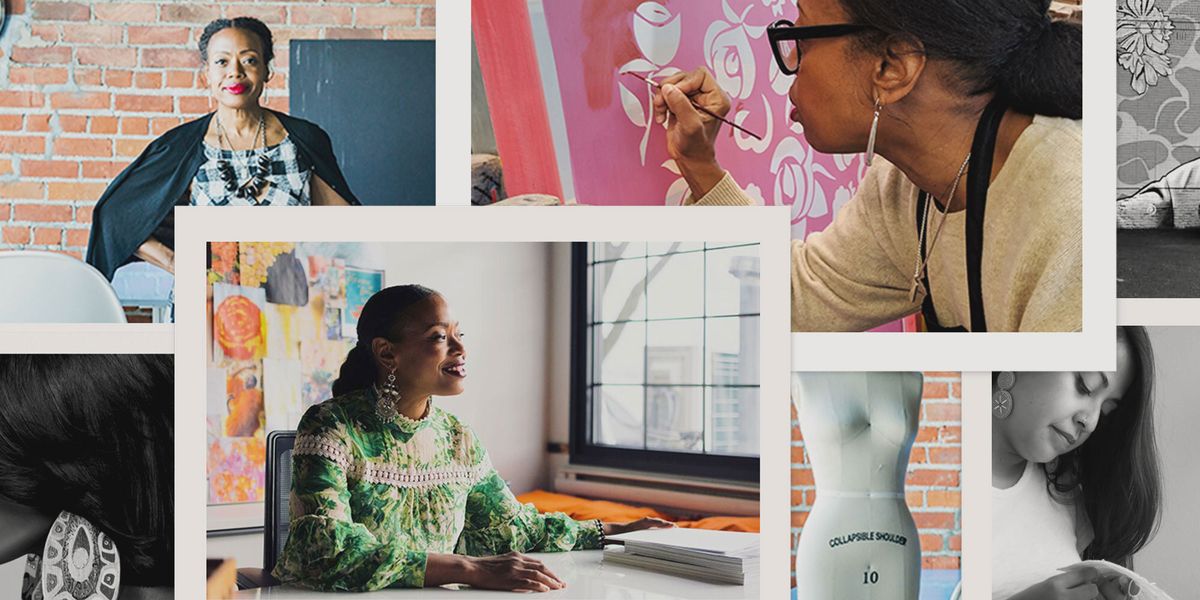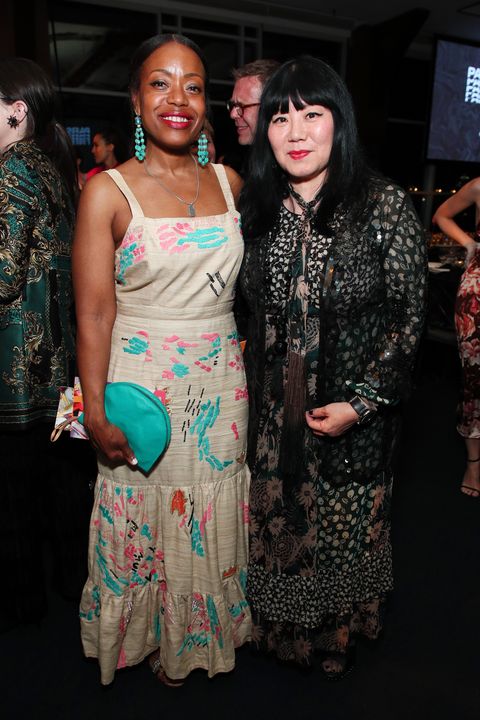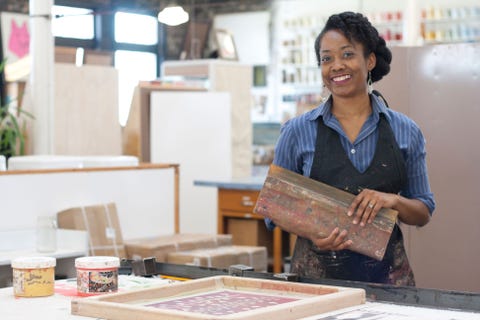Products You May Like

Reese in gingham: Stephanie Steinberg; Green blouse: Erin D. Miller. Screen printing: Shayla Johnson; Makers images courtesy of Nest
Style Points is a new weekly column about how fashion intersects with the wider world.
Even though Detroit is Tracy Reese’s hometown, she sometimes feels out of place there. “It’s very strange, for a city that is predominantly Black, to walk into so many situations where I’m a minority,” she says of the rapidly gentrifying city. “Anywhere from stepping into a buzzy new business, whether it’s in tech or creative or media, or walking into a new restaurant, I could be the only Black person there. It just struck me as really strange and relatively uncomfortable.”
Last year, the designer made a huge investment in Detroit: she started a sustainable line, Hope for Flowers, which is based there. Reese is also on the board of the nonprofit organization Nest, whose Makers United initiative recently launched in the city. While Detroit has become a hub of artisanship, “a lot of the incentives are going to the new population,” as opposed to longtime residents, Reese says. “There is this sense that old-school Detroiters aren’t benefiting much from this renaissance.”
The makers movement hasn’t just taken fashion by storm. Rebecca Van Bergen, Nest’s executive director and founder, jokes that when she started the organization, “No companies were talking about artisan and handcraft and now, literally, there are Doritos called that.” But not everyone has been lifted by the rising tide. Makers United, which operates in Austin, San Antonio, Birmingham, and now Detroit, grew out of an event the group convened to address the lack of diversity in the movement. Those reaping the benefits of the vogue for all things local and handmade “tended to be white and more affluent, often from dual-income households,” she says.
Tackling that disparity feels particularly crucial in light of an industrywide reckoning over racism in fashion. Reese has spoken about the micro- (and macro-) aggressions she’s faced as a Black woman in the industry, “whether it’s being somewhat ignored by industry organizations and media, to not being taken seriously by funders and lenders, to being shunned in booths at textile fairs,” she says. “I will find my way around roadblocks—that’s what I was taught as a child by my parents and it’s still my attitude today—but it doesn’t mean that the roadblocks weren’t there.”
In the past, when Reese tried to address these issues directly, she was often met with apathy. “When you’re the only person in the room who is experiencing it and talking about it, you get a lot of blank stares from white faces,” she says. “People would look at you like it was crazy. Like you were crazy. ‘I’m not a racist, and no racism is occurring in this establishment.’ You were just an angry Black woman.”
Reese finds herself inspired by the younger generation of Black designers, who, she says, “are demanding equality now. They’re not interested in waiting patiently or even buying into establishment structures that aren’t inviting to Black people and people of color. And I agree—it is time to be impatient.”
This content is imported from Instagram. You may be able to find the same content in another format, or you may be able to find more information, at their web site.
For fashion to be truly anti-racist, she says, it “has to start celebrating its sources of inspiration instead of just appropriating and moving on to the next trend. Instead of celebrating those cultures and the makers and designers within those cultures, fashion has historically just appropriated the craft itself and reproduced it in a Western way. We’ve all been guilty of it. Instead of taking someone’s voice, we [need to] invite them into the circle, let them express their own true voices, and celebrate them.” She also advocates taking a hard look at representation in all its forms. “We, as business owners and as board members and organizations, have to look at our supply chain and all the people we do business with and ask, is this a diverse organization that I’m affiliated with?” she says. “We can demand that they diversify and they reflect us and the audience that they serve.”
The recent focus on Black-owned businesses in all industries has helped many designers find a wider audience. But they’re still, like all small businesses, coping with a challenging economic landscape as a result of COVID. “The usual suspects, they have a thousand avenues. Small businesses don’t have that funding,” Reese says. “We rely on media and influencers and word of mouth for people to know that we exist. So it’s important to keep telling those stories and making these great discoveries, because on the other side of this, perhaps we’ll come out with, not just more diversity and people represented but more diversity in product and point of view and inspiration and design. We have walked down this road of sameness for so long, and it’s boring.”
Makers United is working with Same Sky Foundation, Bloomberg Philanthropies and West Elm on the project, and in Detroit, they’ve enlisted the help of small-business platform Gusto Partners. Reese says the group has put out a “broad call” in the community, with the goal of creating wider access to resources and community for people of color, Indigenous people, and immigrants. “There are so many worthy artists and makers and craftspeople here who are going to benefit from this program,” she says. “I’m going to benefit from it as well, because it’s going to widen my circle of acquaintance and collaboration.” Her plan is to work with many of the artisans in the program and sell the wares on her website. “So stay tuned,” she promises, “for some exclusive made-in-Detroit product.”
This content is created and maintained by a third party, and imported onto this page to help users provide their email addresses. You may be able to find more information about this and similar content at piano.io



